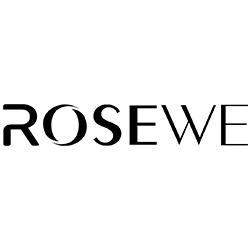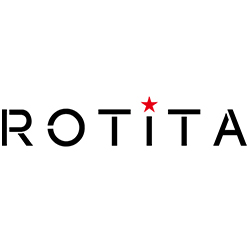When South Bay resident Arjun Batra, 74, heard California Gov. Gavin Newsom’s announcement in mid-January that individuals age 65 and over were eligible to receive the COVID-19 vaccine, he called his health care provider, Kaiser Permanente, in hopes of making an inoculation appointment.
After waiting three hours on hold, Batra said he finally spoke with a Kaiser representative who asked him a “standard set of questions.”
“Based on those answers, the next thing was if there was an appointment available,” he said. “She said there are no appointments available for within the timeframe in which appointments were being given.”
He called the following week. Same thing. Three hours on hold, same questions, and again no appointments.
“I asked to talk to the supervisor,” Batra said. “I told the Kaiser supervisor, ‘I’m not upset with you. I’m a little frustrated with the system.’ If you can try to streamline the system, if there are no appointments, there should be a quicker way to find out there are no appointments. You should have a system that doesn’t take hours to wait on the phone.”
Based on a tip from a friend, he downloaded the hospital’s app. He checked his primary hospital for an appointment time; no luck. After two days, he tried again, opting for another facility farther away. “It gave me three appointments,” he said.
Batra secured an appointment for Feb. 4, the day before his 75th birthday, at Kaiser’s Santa Clara facility at Homestead.
Days later, he received an email notifying him the appointment was canceled with no information on how to reschedule.
“It was a long email,” he said. “‘Due to shortage of vaccine, we are prioritizing right now a different group of people, health care workers, 75 and over,’ and all that. It didn’t give me any information about how I would get a new appointment.”
Batra understands the vaccine is in short supply, and he believes that health care workers and those older than him should be prioritized. That said, he feels the system is broken.
“I do want them to prioritize health care workers,” he said. “I’m able to observe quarantine. I can do everything from home. But not everybody else is as lucky and as blessed as I am.”
Batra’s not alone: The process of obtaining the vaccine, for thousands of seniors across the Bay Area, has been hampered by delays, bureaucracy, inconsistency and, perhaps most damning, a shortage of vaccines.
Several seniors who spoke to SFGATE have experienced countless hurdles in their efforts to get the vaccine, spending hours maneuvering dysfunctional websites and confused customer service representatives — symptoms of a bungled, frustrating rollout.
“It’s the system that’s not smooth and productive and wasting a lot of time and causing a lot of frustration,” Batra said. “We need to smooth the systems.”

A CVS pharmacist gives the Pfizer/BioNTech COVID-19 vaccine to a resident at the Emerald Court senior living community in Anaheim, Calif., on Friday, Jan. 8, 2021.
MediaNews Group/Orange County Re/MediaNews Group via Getty Images, Media News Group/ Getty Images‘Rife with dishonesty’
When Newsom announced the shift into age-based priority for the COVID-19 vaccine last month, it should have been a moment of relief for seniors.
Public health officials praised the move, calling it the best decision for the good of the state’s population, given the limited number of vaccines available.
Dr. Tomás J. Aragón, the director of the California Department of Public Health, said that the move may push down the number of hospitalizations and benefit Californians at large, according to the Sacramento Bee.
But the sudden change away from California’s initial rollout has proven chaotic for both patients and doctors.
James Moldovan, a 70-year-old San Francisco resident and cancer survivor, said confusion arose following the notice, as some providers were offering the vaccine to individuals 65 and over, while others only to those 75 and over.
Moldovan’s health care provider, Sutter Health, has been clear that those who are 75 years or older or work in community health care are being prioritized, but he hasn’t been able to get an estimated date for when he may get vaccinated. (A representative for the hospital declined to comment further to SFGATE.)
“I emailed my doctor and he said, basically, you’re kind of on your own,” said Moldovan, who has been confined to his house without a car throughout the pandemic. “That has been the message of this thing. And that’s not a cheery message that you’re on your own.”
Meanwhile, Moldovan has a 72-year-old friend who was vaccinated through his provider and another acquaintance, a donor to a hospital, allegedly received special treatment.
“The rollout has been rife with dishonesty,” he said. “The city’s place is to initiate and to ensure good public policy. The city could coordinate with the Kaisers and the Sutters … they’re not being completely honest with people.” said Moldovan.
‘We understand the frustration’
Even for those who are able to get appointments, the process has been riddled with hurdles.
In Santa Clara County, nearly 5,000 seniors — Batra among them — scheduled for the COVID-19 vaccine at Kaiser hospitals had their appointments canceled.
The Los Angeles Times first reported Tuesday that Kaiser did not obtain the number of vaccines it had previously anticipated, a number estimated by prior shipments and government guidance.
“We understand the frustration this causes, and we are continuing to do all we can to increase the supply of vaccines, working in partnership with county, state and federal governments,” a spokesperson for Kaiser said. They plan on scheduling every individual 75 years or older, but said that younger seniors will have to wait until there is a “significant increase in vaccine supply.”
To the north in Sonoma County, another crisis unfolded on the same day. A leaked county website link resulted in thousands of people 65 to 74 signing up for a vaccine before those 75 and older. After it went viral on social media, thousands of appointments were canceled, and the county has apologized.
“Mistakes get made, and I’m going to guess more mistakes will be made because we’re trying so hard to get this right,” said Chris Coursey of the Sonoma County Board of Supervisors, per KTVU.
Sonoma County spokesman Matt Brown said the site has since been amended to clearly specify that only individuals over 75 can be vaccinated.

‘Solved my problems’
Some hospitals are strategizing to avoid canceling appointments, and UCSF said it has yet to cancel any.
“We are scheduling only a few days at a time to prevent this type of scenario,” UCSF spokesperson Elizabeth Fernandez wrote in an email to SFGATE.
As of Sunday, UCSF had administered 40,268 vaccines, according to Fernandez.
“Our vaccinations have gone to employees and trainees who are at highest risk of exposure, as well as patients,” Fernandez said. “We also have vaccinated non-UCSF health care workers in partnership with the city and county of San Francisco.”
And despite myriad obstacles, seniors are successfully procuring vaccines, often by trying multiple avenues and then suddenly coming upon the one that works.
Jeff Neustadt, a 76-year-old San Franciscan, is on Medicare with a supplement and was unable to get any information on how to access the vaccine from his primary care physician.
After spending at least 10 hours making calls and checking websites, he signed up through Sutter and was given an appointment in San Mateo — after he heard a tip that they were distributing vaccines to nonmembers.
“I was between a rock and a hard place,” he said. “It took lots of hours, lots of phone calls.”
That said, Neustadt recognized that he was lucky, in retrospect.
“It would be difficult for someone who wasn’t mobile as my appointment was in San Mateo.”
And in Sonoma County, where the scheduling website fiasco took place, 82-year-old Richard Hirsch successfully navigated it all. “I have solved my problems,” he said.
Despite some initial confusion as to when he would be vaccinated, he was able to find multiple local appointments. He’s scheduled to get his first shot at the end of this week.
“I’m in good shape,” he said.


